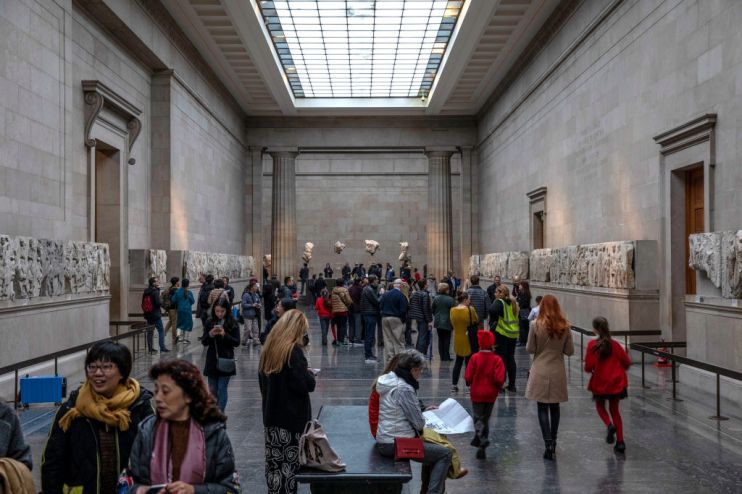Brexit: EU hints at demand for Elgin Marbles in trade talks

The EU is fighting back over Downing Street’s rejection of so-called level-playing field rules – and hinted that it may call for “cultural objects” to be removed from the UK.
In a revised version of the negotiating mandate that Michel Barnier is expected to use when talks resume next week, the EU Council made clear that it expects a level-playing field – meaning rules around competition, state aid and tax among others – that will “stand the test of time”.
The draft mandate, which has been circulating online today, also seemed to suggest the EU would seek to regain artefacts, calling for “the return or the restitution of unlawfully removed cultural objects to their countries of origin”.
It is unclear what this clause relates to. Bloomberg cites one official describing it as “a direct reference” to the Elgin or Parthenon Marbles – however a Greek official insisted this was not a condition for a deal.
The document is due to be finalised tomorrow (Wednesday), with talks between Barnier and his counterpart David Frost set to resume in early March.
Barnier also took a hardline position today, telling reporters that the UK was “not like Canada”, despite Downing Street’s insistence that it should get a trade deal similar to the one struck between the EU and the North American country.
Speaking the day after Johnson’s sherpa Frost gave a rousing lecture in Brussels, Barnier criticised Downing Street’s “polemic”.
“We have proposed a trade agreement with a country that has a very particular and unique close geographical proximity not like Canada, not like South Korea and not like Japan. Very particular,” he said.
Yesterday Frost accused the EU of “failing to see the point” of the UK’s demands on the level-playing field, which he argued was central to the entire reason for Brexit.
“We bring to the negotiations not some clever tactical positioning but the fundamentals of what it means to be an independent country,” he said in a lecture to the Université Libre de Bruxelles. “It is central to our vision that we must have the ability to set laws that suit us – to claim the right that every other non-EU country in the world has.
“To think that we might accept EU supervision on so called level playing field issues simply fails to see the point of what we are doing. It isn’t a simple negotiating position which might move under pressure – it is the point of the whole project.”